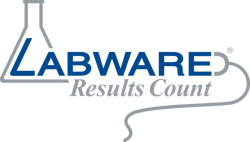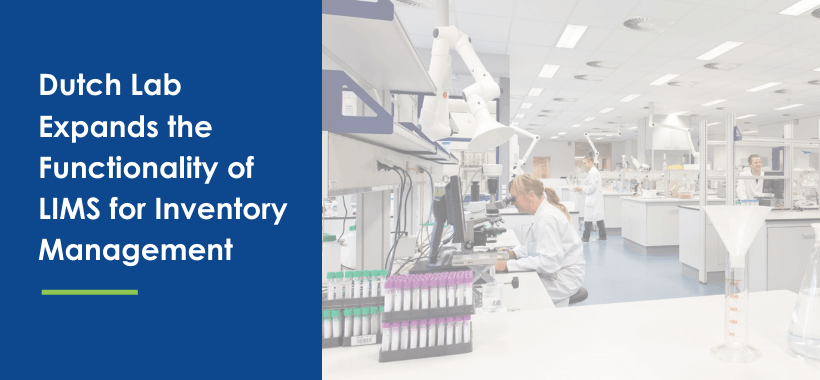
The evaluation of drug products' safety, efficacy and quality over time is an essential element of pharmaceutical stability testing. As the industry progresses, so do the strategies and technologies used for executing these essential studies. In this blog post, we will delve into various aspects of stability management within pharmaceutical testing.
We will explore the importance of stability management for pharmaceutical products and discuss how Laboratory Information Management Systems (LIMS) can automate stability monitoring processes. Furthermore, we will examine the benefits of integrating sample and study management as well as automating sample generation and storage control.
Lastly, we'll touch on advanced reporting capabilities that facilitate data analysis for shelf-life prediction models and comparisons between batches or formulations. Additionally, we'll address protocol adaptability & compliance assurance in light of evolving regulations and industry standards related to pharmaceutical stability testing.
Stability Management in Pharmaceutical Testing
Stability management is a core principle behind excellent outcomes in pharmaceutical stability testing, starting at the very beginning of the sample lifecycle. A Laboratory Information Management System (LIMS) helps automate stability monitoring and documentation, ensuring data reliability while integrating with various laboratory systems, networks, instruments, and processes.
Importance of Stability Management for Pharmaceutical Products
In order to ensure the safety and efficacy of pharmaceutical products throughout their shelf life, it is crucial to conduct stability studies. These studies provide valuable information on how active pharmaceutical ingredients (APIs), finished pharmaceutical products, solid dosage forms, drug substances, degradation products, and other components change over time under different storage conditions. This data enables companies to establish proper storage guidelines as well as determine expiration dates or retest periods for their drugs.
Effective stability management ensures that all aspects of these tests are conducted accurately and consistently by automating tasks such as sample generation following defined protocols, control over storage conditions during tests, and advanced reporting capabilities. In addition, an efficient LIMS can help maintain compliance with regulatory requirements by supporting multiple test methods, specifications, and guidelines.
The Role of LIMS in Automating Stability Monitoring
A robust LIMS like LabWare's industry-leading solution plays a vital role in streamlining the entire process involved in conducting accelerated stability studies or long-term stability studies for your pharmaceutical development projects. By centralizing all relevant information within a single system, it becomes easier to manage and track the progress of various stability studies across multiple drug products, dosage forms, and storage conditions.
Automation is key when it comes to maintaining consistency in data collection and documentation throughout the entire lifecycle of a pharmaceutical product. A LIMS system can help automate tasks such as sample generation based on specific protocols or controlling storage conditions during tests, ensuring that all aspects of your stability testing process are consistent. This level of automation not only improves efficiency but also reduces the likelihood of human error, ultimately resulting in more reliable stability data.
Moreover, integrating a LIMS with other laboratory systems like analytical instruments for conducting forced degradation studies or formulations helps to develop tools that can further enhance its capabilities. By providing real-time access to critical information required for making informed decisions about your product's safety and efficacy.
Stability management is an essential component of pharmaceutical testing and LIMS systems can help streamline the process. By integrating sample and study management, organizations can benefit from a centralized approach that helps to simplify protocols.
Key Takeaway: Stability management is crucial for ensuring the safety and efficacy of pharmaceutical products throughout their shelf life. A Laboratory Information Management System (LIMS) can automate stability monitoring, maintain compliance with regulatory requirements, and streamline the entire process involved in conducting accelerated or long-term stability studies. Automation not only improves efficiency but also reduces human error, resulting in more reliable stability data.
Sample and Study Management Integration
Effective stability testing starts with exceptional sample management but requires study management to perform accurate product evaluations over time. Centralization and automation within a Laboratory Information Management System (LIMS), such as LabWare, help to ensure correct planning procedures upfront by streamlining sample studies and protocol requirements. This integrated approach not only enhances the efficiency of your pharmaceutical stability testing process but also improves data quality, ultimately leading to better decision-making regarding drug development.
Benefits of Centralized Sample Management
- Data consistency: A centralized LIMS ensures that all samples are managed consistently across various stages of the stability study, reducing errors in data entry or analysis.
- Easier tracking: With all information stored in one place, it becomes easier for stakeholders to track progress on individual samples or entire batches throughout their lifecycle.
- Faster access: Centralizing sample management allows for quicker retrieval of relevant information when needed.This enhances the decision making processes related to release testing and long-term stability studies.
- Better collaboration: By providing a single platform for managing samples and associated data, LabWare fosters improved communication among team members involved in different aspects of pharmaceutical development - from formulation development to clinical trials.
Streamlining Study Protocols through Integration
A well-designed LIMS can help streamline the execution of study protocols by automating key tasks such as generating test schedules based on predefined criteria like storage conditions or active pharmaceutical ingredients. It can also automatically assign tests at appropriate intervals during accelerated studies or long-term stability studies while ensuring compliance with regulatory guidelines. Furthermore, integration with other laboratory systems enables seamless data transfer between instruments and the LIMS system,, minimizing manual intervention and reducing the risk of errors.
For instance, a LIMS can be configured to automatically generate samples for forced degradation studies, ensuring that all required tests are conducted at appropriate time points. Similarly, it can manage storage conditions for various dosage forms like solid dosage forms or finished pharmaceutical products by controlling factors such as temperature and humidity within specified limits.
In addition to automating routine tasks, an integrated LIMS also supports advanced features like sample pooling or bracketing during stability testing. These capabilities help reduce the number of tests needed while still providing robust stability data on drug substances or primary degradation products. By streamlining study protocols through integration with other systems, your organization can save valuable resources without compromising on quality.
To sum up, integrating sample management with study management in a centralized LIMS is essential for efficient execution of pharmaceutical stability testing programs. It ensures consistent handling of samples throughout their lifecycle while simplifying complex processes related to protocol adherence and regulatory compliance. Ultimately, this leads to more accurate evaluations of active ingredients' shelf life/retest period as well as providing crucial information when determining safety and efficacy profiles for new drug products entering clinical trials or market release stages.
Sample and Study Management Integration provides a streamlined approach to laboratory management, allowing for improved organization and control of samples. Automation for Sample Generation and Storage Control offers an even higher level of efficiency by providing automated generation following defined protocols while adding consistent control over storage conditions.
Key Takeaway: Integrating sample management with study management in a centralized LIMS is crucial for efficient execution of pharmaceutical stability testing programs. A well-designed LIMS can help streamline the execution of study protocols by automating key tasks and ensures compliance with regulatory guidelines, ultimately leading to better decision-making regarding drug development. This approach not only enhances the efficiency of your pharmaceutical stability testing process but also improves data quality, reducing errors in data entry or analysis.
Automation for Sample Generation and Storage Control
In the realm of pharmaceutical stability testing, efficiency and consistency are paramount to ensuring accurate results. One way to achieve this is by automating essential tasks such as generating samples based on specific protocols or controlling storage conditions during tests. A Laboratory Information Management System (LIMS) can significantly improve these aspects, leading to a more streamlined process that ensures consistency across all stages of your pharmaceutical stability testing.
Automated Generation Following Defined Protocols
The first step in any stability study involves creating samples according to predefined protocols, which may include varying factors like dosage forms, active pharmaceutical ingredients, or storage conditions. Manually preparing these samples can be time-consuming and prone to human error; however, with an advanced LIMS like LabWare, you can automate sample generation based on the required specifications.
- Reduced errors: Automation minimizes the risk of mistakes associated with manual sample preparation processes.
- Faster turnaround times: Automated systems expedite sample generation by eliminating tedious manual steps involved in preparing test materials.
- Better documentation: A LIMS records every detail about each generated sample, from its formulation development stage through clinical trials to providing complete traceability throughout the entire lifecycle of a product's drug development journey.
Consistent Control Over Storage Conditions
Maintaining proper storage conditions is crucial for preserving the integrity of both drug substances and finished pharmaceutical products during long-term stability studies. Factors such as temperature, humidity levels, and light exposure must be carefully controlled over time while conducting accelerated stability studies. A LIMS can help automate this process, ensuring that all samples are stored under the same conditions throughout their testing period.
- Automated monitoring: LIMS can continuously monitor storage environments and alert users to any deviations from specified parameters, allowing for quick corrective actions if necessary.
- Data integrity: By automating storage control processes, a LIMS ensures that collected stability data remains accurate and reliable - essential for determining shelf life predictions or identifying primary degradation products in drug administration scenarios.
- Regulatory compliance: Consistent storage conditions not only improve test results but also demonstrate adherence to regulatory guidelines set forth by organizations like the FDA or ICH (International Council for Harmonisation of Technical Requirements for Pharmaceuticals for Human Use). This is crucial when it comes time to submit your product's release testing documentation during approval processes.
Incorporating automation into sample generation and storage control within pharmaceutical stability testing helps ensure consistency across every stage of the process. By utilizing an advanced LIMS such as LabWare, you can streamline these critical tasks while maintaining high standards of accuracy and efficiency,ultimately leading to better outcomes in terms of product quality assessment over time.
Automation guarantees consistency in sample production, giving users trustworthiness when it comes to the information they have. With this control established, advanced reporting capabilities can then be employed to gain further insight into sample performance over time.
Key Takeaway: Automating sample generation and storage control in pharmaceutical stability testing through a LIMS such as LabWare can lead to improved efficiency, consistency, and accuracy. Benefits include reduced errors, faster turnaround times, better documentation, automated monitoring of storage conditions with data integrity for regulatory compliance.
Advanced Reporting Capabilities for Data Analysis
A Laboratory Information Management System (LIMS) with advanced reporting capabilities can significantly enhance your ability to analyze this data effectively. In this section, we will discuss how a LIMS like LabWare can provide valuable insights through table generation, shelf life predictions, comparisons between different batches and formulations, and trend spotting.
Shelf Life Prediction Models Using Collected Data
A key aspect of stability studies is determining the shelf life of active pharmaceutical ingredients (APIs) and finished pharmaceutical products. By leveraging collected stability data from long-term stability studies as well as accelerated studies simulating harsher storage conditions, a LIMS can generate predictive models that estimate the product's shelf life under various scenarios. These models help ensure that drug substances remain within acceptable limits throughout their intended retest period or expiration date.
Comparisons Between Batches or Formulations
Another essential feature in advanced reporting is the ability to compare results across multiple batches or formulations easily. This capability allows you to identify any inconsistencies in quality control measures during drug development stages such as formulation development or release testing on solid dosage forms. Moreover, it enables you to assess potential degradation pathways by comparing products during forced deterioration studies conducted at different storage conditions.
- Data Visualization: Advanced graphical representations such as bar charts and line graphs make it easier for users to visualize trends over time while identifying outliers that may warrant further investigation.
- Trend Analysis: With built-in statistical tools like regression analysis and ANOVA, a LIMS can help you identify trends in stability data and degradation products, allowing for proactive measures to maintain product quality.
- Customizable Reports: A flexible reporting system allows users to create custom reports tailored to their specific needs, ensuring that all relevant information is readily accessible when making critical decisions about drug administration or clinical trials.
In addition to these advanced features, it's essential that your chosen LIMS supports compliance with regulatory guidelines such as the International Council for Harmonisation (ICH) Q1A(R2) guideline on stability testing of new drug substances and products. This ensures that your analytical methods are appropriately validated using stability indicating methods while providing accurate shelf life estimations based on established criteria.
To summarize, investing in a LIMS with advanced reporting capabilities like LabWare can significantly enhance your ability to analyze pharmaceutical stability data effectively. By offering predictive models for shelf life estimation, comparisons between different batches or formulations, and comprehensive trend analysis tools, you'll be better equipped to make informed decisions about product safety and efficacy throughout its lifecycle. Discover how LabWare's industry-leading LIMS can revolutionize your pharmaceutical stability testing today.
Advanced reporting capabilities for data analysis allow you to leverage collected information in order to make informed decisions, thus maximizing efficiency and productivity. With protocol adaptability & compliance assurance, organizations can ensure their processes are up-to-date with the latest industry standards while minimizing potential risks.
Key Takeaway: Investing in a LIMS with advanced reporting capabilities can enhance pharmaceutical stability testing by providing valuable insights through shelf life prediction models, comparisons between batches or formulations, and trend analysis tools. LabWare's industry-leading LIMS offers customizable reports tailored to specific needs while ensuring compliance with regulatory guidelines such as the ICH Q1A(R2) guideline on stability testing of new drug substances and products.
Protocol Adaptability & Compliance Assurance
In the ever-evolving landscape of pharmaceutical stability testing, it is crucial to choose a Laboratory Information Management System (LIMS) that can adapt quickly without compromising compliance standards. While supporting multiple test methods, specifications and regulatory guidelines, an adaptable system will help maintain efficient workflows even as requirements change.
Ensuring Compliance with Evolving Regulations
The world of pharmaceutical regulations is constantly changing due to new discoveries in drug development and advancements in analytical methods. As such, your LIMS must be able to keep up with these changes while ensuring that your organization remains compliant at all times. This includes adhering to international standards like the International Council for Harmonisation (ICH) guidelines on stability studies or local regulations from agencies such as the US Food and Drug Administration (FDA) or European Medicines Agency (EMA). A robust LIMS should provide:
- Automated updates for regulatory changes affecting stability testing protocols.
- Audit trails documenting any modifications made within the system.
- Data integrity features that ensure accurate results throughout long-term stability studies.
- User access controls that prevent unauthorized alterations of data or protocols.
Adapting to New Methodologies and Industry Standards
Beyond compliance with evolving regulations, a flexible LIMS should also support new methodologies emerging within pharmaceutical development, including novel active pharmaceutical ingredients (APIs), finished product formulations, and advanced analytical techniques. This capability enables your business to remain ahead of the curve while preserving a stringent standard of excellence for your items. Some key features that contribute to LIMS adaptability include:
- Customizable templates for stability-indicating methods, forced degradation studies, and other specialized tests.
- Integration with various laboratory instruments used in pharmaceutical testing, such as High-Performance Liquid Chromatography (HPLC) or Mass Spectrometry (MS).
- The ability to handle different dosage forms like solid dosage forms, liquids, or semi-solids.
In addition to supporting new methodologies and industry standards, an adaptable LIMS should also facilitate collaboration between departments involved in drug development. From formulation development teams conducting accelerated stability studies during early-stage clinical trials to Quality Control (QC) labs responsible for release testing on finished pharmaceutical products, all are interconnected. By centralizing data across these groups within a single system, you can streamline communication and decision-making processes throughout the entire product lifecycle.
LabWare's industry-leading LIMS is designed with protocol adaptability and compliance assurance in mind. Our comprehensive solution ensures that your organization remains compliant with evolving regulations while providing the flexibility needed to support innovative methodologies within pharmaceutical stability testing. With LabWare's robust features and seamless integration capabilities at your disposal, you can confidently navigate the complex world of drug development knowing that your data is accurate, secure, and always up-to-date.
Key Takeaway: When choosing a Laboratory Information Management System (LIMS) for pharmaceutical stability testing, it is important to select one that can adapt quickly without compromising compliance standards. The LIMS should be able to keep up with evolving regulations and support new methodologies while ensuring accurate results throughout long-term stability studies. LabWare's industry-leading LIMS provides the flexibility needed to support innovative methodologies within pharmaceutical stability testing while remaining compliant with evolving regulations.
FAQs in Relation to Pharmaceutical Stability Testing
What is stability testing in pharma?
Stability testing in pharma refers to the process of evaluating the physical, chemical, and microbiological properties of a drug product over time under specified environmental conditions. The purpose is to determine shelf life, storage conditions, and packaging requirements for maintaining quality and efficacy throughout its lifecycle. FDA guidelines provide recommendations on conducting these tests.
What is the FDA guidance on stability testing?
The FDA guidance on stability testing can be found in their document titled "Guidance for Industry: Q1A(R2) Stability Testing of New Drug Substances and Products". It provides detailed information about study design, test procedures, data analysis methods, documentation requirements, as well as recommended storage conditions and shelf-life determination practices.
What are the methods for stability testing of pharmaceuticals?
Different methods used in pharmaceutical stability testing include:
- Accelerated Stability Studies: Conducted at elevated temperatures or humidity levels to predict long-term behavior quickly.
- In-use Stability Studies: Evaluating product performance during actual use or simulated use scenarios.
- Benchtop (Real-time) Stability Studies: Performed under controlled temperature/humidity settings that mimic real-world storage environments.
Which ICH guideline covers stability testing?
The International Council for Harmonisation (ICH) has published several guidelines related to pharmaceutical stability studies. The most relevant one is "ICH Q1A(R2) Stability Testing of New Drug Substances and Products", which provides a comprehensive framework for designing, conducting, and analyzing stability tests to ensure drug quality throughout its shelf life.
Conclusion
Pharmaceutical Stability Testing is a critical aspect of drug development and release testing. Stability testing is a key part of drug development and release assessment, enabling pharma companies to guarantee their goods are dependable and effective for patients over an extended period. The integration of LIMS systems, centralized sample management, automation, advanced reporting capabilities, and protocol adaptability can streamline the process while ensuring compliance with evolving regulations.
In conclusion, implementing a comprehensive stability management system is crucial to maintaining product quality throughout its shelf life. By utilizing modern technologies such as LIMS systems and automation tools in conjunction with established analytical methods like forced degradation studies or stability-indicating methods, pharmaceutical companies can confidently predict shelf-life and maintain consistent control over storage conditions. Contact LabWare today to learn more about how our solutions can help you optimize your Pharmaceutical Stability Testing processes.
















